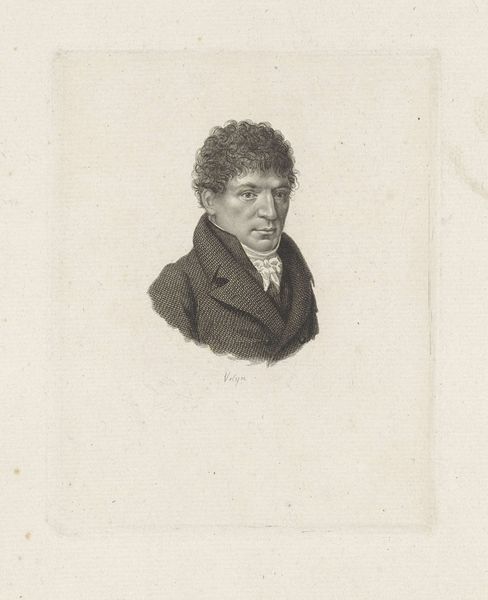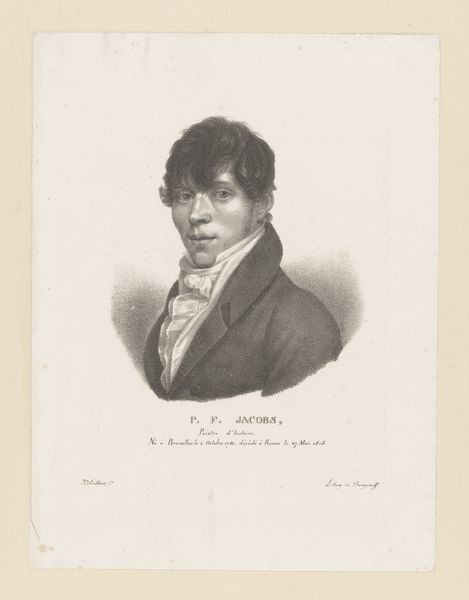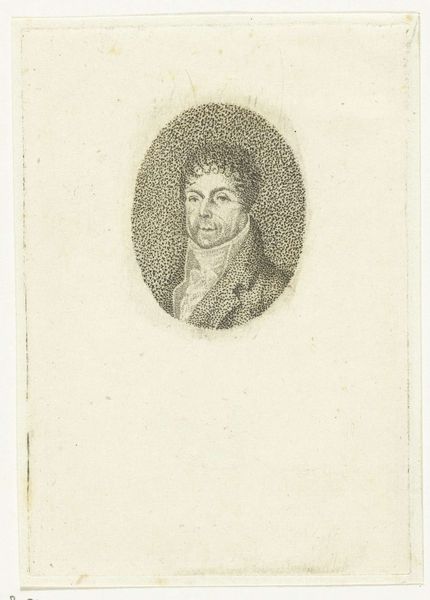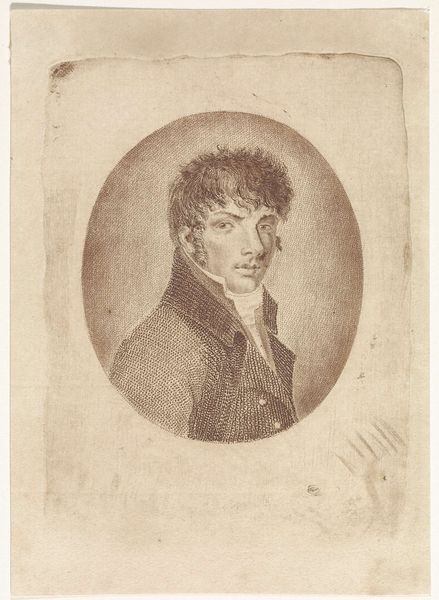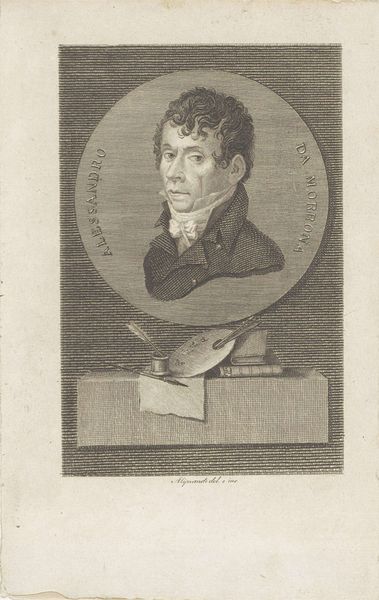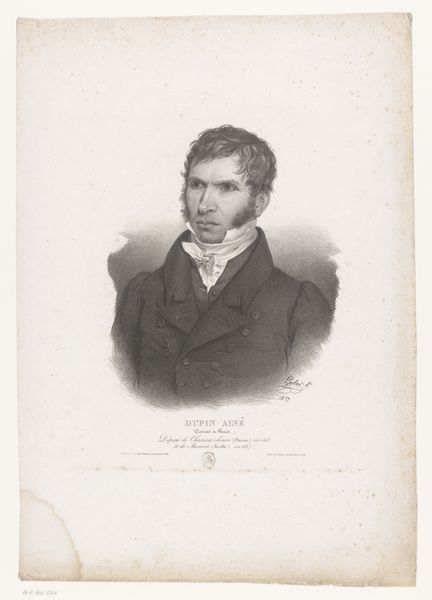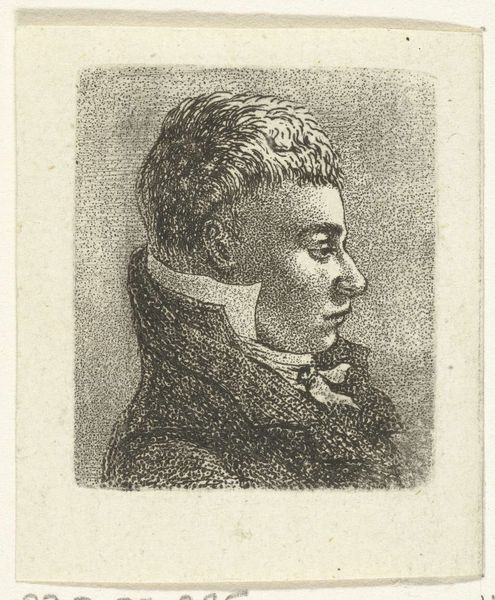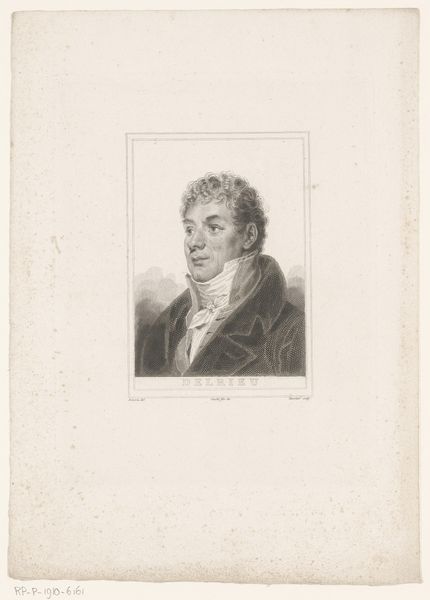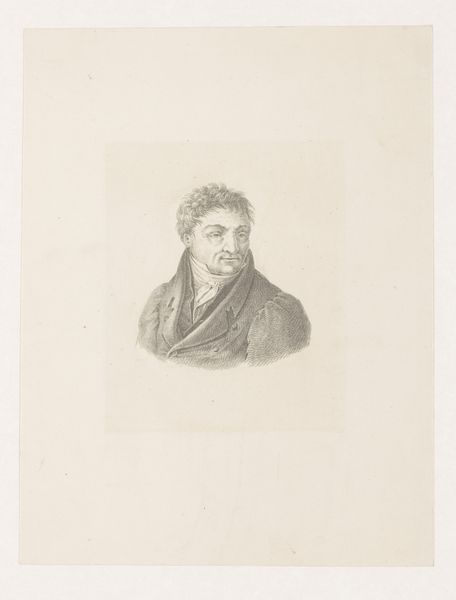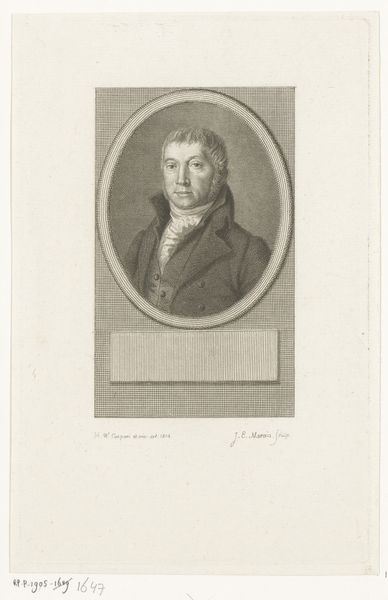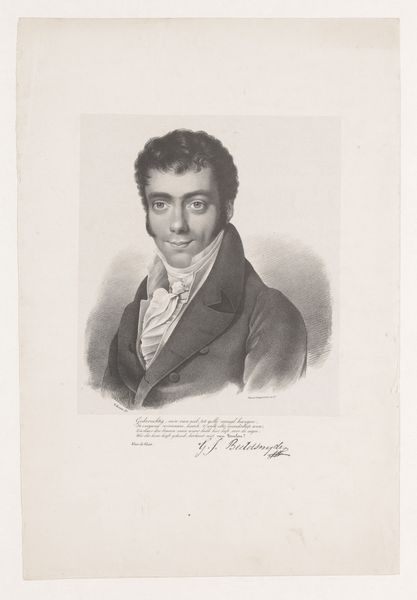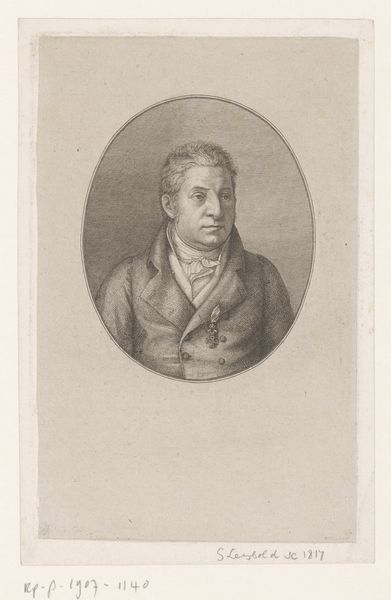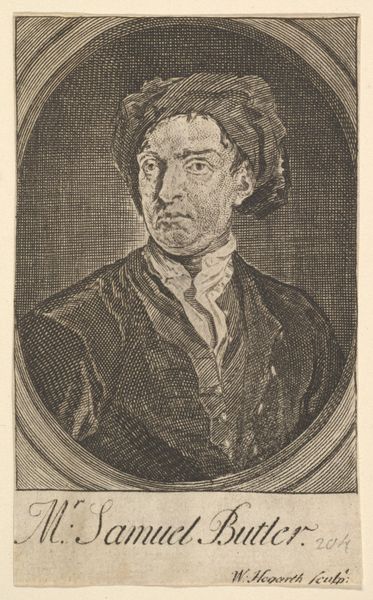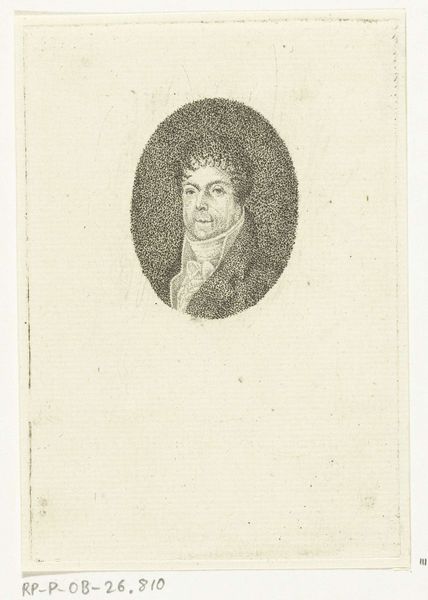
portret van Wange Hendrik Richard van Bali, de bediende van Jan Hendrik Bagelaar 1798 - 1837
0:00
0:00
engraving
#
portrait
#
old engraving style
#
caricature
#
portrait reference
#
romanticism
#
portrait drawing
#
history-painting
#
engraving
Dimensions: height 74 mm, width 56 mm
Copyright: Rijks Museum: Open Domain
Editor: Here we have a rather remarkable engraving, "portret van Wange Hendrik Richard van Bali, de bediende van Jan Hendrik Bagelaar" dating somewhere between 1798 and 1837, by Ernst Willem Jan Bagelaar. There's something compelling about the subject’s gaze; I wonder how you interpret this work, especially regarding its composition? Curator: The first point to note is the structural importance of line. Observe how the artist uses hatching and cross-hatching to create a tonal range that defines the form of the subject, from the tightly coiled hair to the draping of the coat. What does this linearity, coupled with the sitter's central placement, suggest to you? Editor: Well, the linearity emphasizes the subject's features, bringing them into sharp focus. And the central composition feels almost confrontational. Could we interpret the symmetry as a form of classical portraiture, almost elevated in style? Curator: Indeed, and the carefully considered gradation of tone creates volume and depth. Bagelaar’s formal concern, while seemingly simple, yields a complex interplay between light and shadow that adds dimension to the subject's persona. Consider, though, how the precise detail in the facial features is contrasted with a comparative looseness in the rendering of the clothing. Why might this be? Editor: Perhaps a strategy for directing our attention? The focus is clearly on the individual, his essence. This heightened detail encourages closer inspection of his gaze. Curator: Precisely. Through line and tone, and also the calculated imbalance between them, Bagelaar crafts not just an image, but an experience of observation and contemplation. Editor: That’s a very illuminating perspective. The structural and material elements combine to form this work, encouraging introspection about the individual and artistic intention. Curator: It demonstrates how seemingly traditional techniques, rigorously applied, can still evoke new possibilities for looking and feeling.
Comments
No comments
Be the first to comment and join the conversation on the ultimate creative platform.
